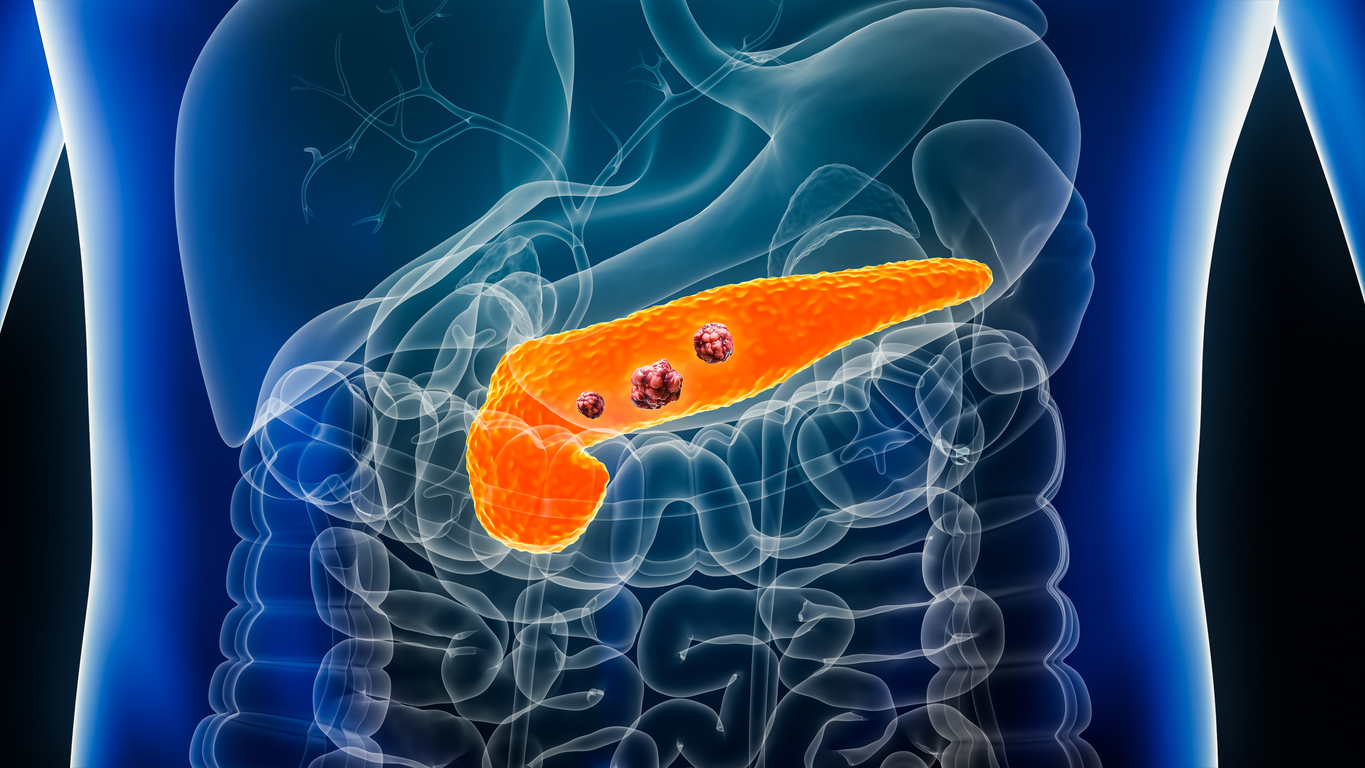2024-04-03
Nanoparticles to deliver a pancreatic cancer drug
Pharmacology and Toxicology
Researchers here have synthesized a prodrug, squalenoyl-chidamide, binding lipophilic squalene to the hydrophilic antitumor drug chidamide via trypsin-sensitive binding. The nanoparticles developed showed significantly higher in vitro drug release in 0.5% trypsin medium, compared with release in trypsin-free medium. In vitro cellular uptake tests revealed a two- to four-fold higher permeation of nanoparticles into the tumor spheres of pancreatic tumor cells. After intraperitoneal administration to mice with subcutaneous tumors, these nanoparticles demonstrated significant efficacy against pancreatic cancer, inducing apoptosis of cancer cells and inhibiting their proliferation in vivo.

Last press reviews
Gut microbiome and neurodegeneration: a new therapeutic lever

By Elodie Vaz | Published on February 12, 2026 | 3 min read<br>
Fragile heart, vulnerable brain?

By Ana Espino | Published on February 13, 2026 | 3 min read<br><br>
A practical look at HCM in young athletes

By Carolina Lima | Published on February 13,&nbs...